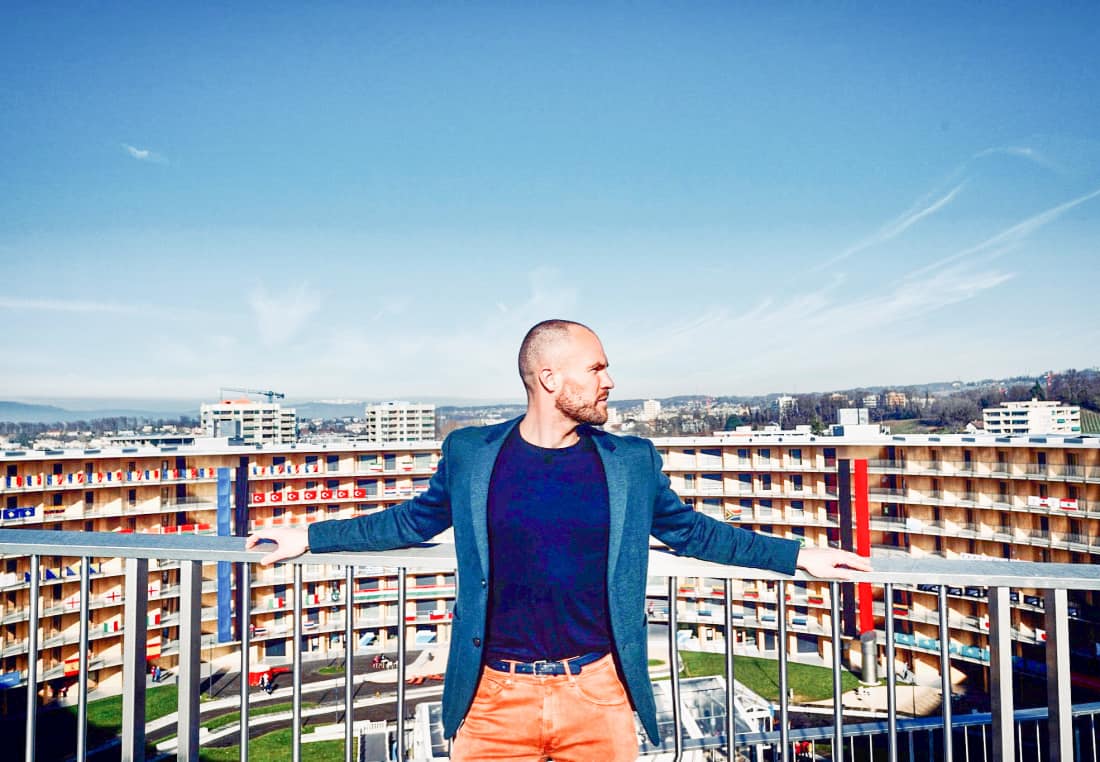
In 2007, Devin Heroux publicly came out as gay in a Sheaf column, receiving both positive responses and hate mail. Today, he is an Olympic reporter with CBC, “living [his] dream.”
Heroux grew up in Saskatchewan surrounded by sports. A hockey player, he looked every bit the typical “sports guy” from the outside. Hiding his sexuality, however, felt like putting on a mask every single day.
“Everything in my life became about performance and putting on masks in these hyper-masculine spaces of the sporting world,” Heroux said. “But being gay in the sports world, at least from my perspective at that point in my life, just didn’t jive.”
It wasn’t until Heroux got to university that things started to change. His time as sports and health editor at the Sheaf was particularly crucial; after a while, he confided in a few members of the staff and of the Pride Centre next door and having their support made all the difference.
In December 2007, a month after coming out to his parents, Heroux made a very public move — he came out in his sports column at the Sheaf, titled “Let’s Be Honest.” The response was varied. The Sheaf office received mail from people saying he was attention-seeking or up to a publicity stunt. However, Heroux looks back on that time with happiness.
“I knew that if there was one person out there that was going to read it and feel it’s okay, then it was worth it,” Heroux said. “When I tweet about how I came out, I still get notes from people who were attending the University of Saskatchewan during that time, who write to me and say, ‘I remember that and I will never forget it.’ It gives me chills.”
Now a successful Olympian reporter, Heroux continues to use his ever-growing platform to give visibility to queer people. Having written many coming-out stories about pro athletes, Heroux says there’s still a need for more, particularly in the sporting world.
“As somebody who grew up in Saskatoon, who literally had no representation — I had no idea what it meant to be gay,” Heroux said. “I didn’t know you could like sports and be gay.”
To Heroux, being able to be himself fully has made all the difference in his relationships and in his writing. His commitment to pushing for representation in the sports world comes down to letting people be themselves and reach their full potential.
“I’ve talked to so many athletes, so many Olympians, who talk about the fact that they would melt down in big moments because they couldn’t show up fully — to me that’s so heartbreaking,” Heroux said.
“There’s so much work that needs to be done in the sporting world to allow all walks of life to show up on the field to play and be exactly who they are.”
The demographic of sports reporters is still dominated by straight white men. Heroux says that the “old guard” in the industry pushes for a detachment in reporting that he can’t get behind. He says his experience coming to terms with his sexuality changed his perspective for the better.
“It made me a better journalist because I could empathize and have compassion for people in a way that I’ve never had before,” Heroux said. “I know what it means to me … to be in the presence of people who allow me to show up as I am — there’s nothing greater than that.”
While things are improving, Heroux says that there’s still a lot of work to be done to make the sports world more accepting — that there are always new things to think about.
“I think that the trans issue is going to be the next big hurdle in the sporting world, and I still think we’re really uncomfortable about it,” Heroux said. “We don’t know how to address it, and that breaks my heart.”
Meanwhile, Heroux does his part by pushing for representation and allowing people to be their true selves when talking to him. Thinking back on his time at the Sheaf and the changes he made to his life while there, he sees it as a “turbulent but crucial time” that he takes with him to this day.
“We take these steps, these progressive baby steps. But along each impasse, there are still ways that we can push and search,” Heroux said. “I think my own journey has taught me [that] when we think we’ve got it all figured out, that’s when we need to start to worry and that’s when we need to start pushing ourselves a little more.”
—
Ana Cristina Camacho/ News Editor
Photo: Supplied by Thomas Skrlj
Leave a Reply